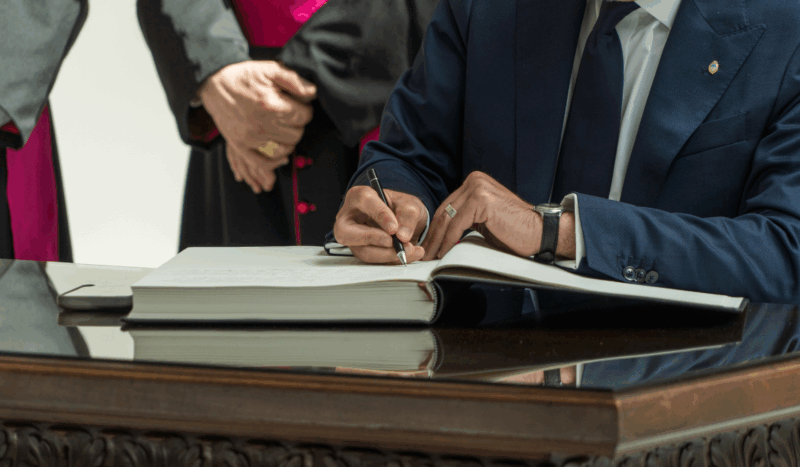
Mo Photography Berlin / Shutterstock.com
The Internal Revenue Service (IRS) announced July 7 that churches and houses of worship can now endorse political candidates to their congregations without losing their tax-exempt status, a shift that reinterprets the agency’s long-standing ban on nonprofit political activity.
Revealed in a court filing and first reported by The New York Times, the move redefines how the IRS enforces the Johnson Amendment — a 1954 law that bars 501(c)(3) organizations from engaging in political speech.
The IRS made the change as part of a legal settlement with two Texas churches and a Christian broadcasters group, who argued that the speech restriction violated both free speech and religious liberty. The plaintiffs asked a federal court in Texas to extend the exemption to all nonprofits, including secular organizations.
“Bona fide communications internal to a house of worship, between the house of worship and its congregation, in connection with religious services, do neither of those things, any more than does a family discussion concerning candidates,” the IRS wrote in the filing.
Rep. Mark Harris, R-N.C., praised the decision on X as a “victory for free speech.”
“The IRS must never infringe on the First Amendment rights of American pastors to speak freely,” Harris wrote. “It’s time for Congress to make this win PERMANENT with my Free Speech Fairness Act. Let’s ensure free speech is guaranteed for all!”
In April, Harris and Sen. James Lankford, R-Okla., introduced the Free Speech Fairness Act to roll back the Johnson Amendment. The bill would allow religious and nonprofit organizations to address political issues as part of their regular activities, provided the costs are minimal.
Prominent groups, including the Family Research Council (FRC) and the First Liberty Institute, championed the bill as a major defense of free speech in the public square.
The IRS admitted in its filing that it has rarely enforced the Johnson Amendment against churches. A 2022 investigation by ProPublica and the Texas Tribune — cited by The Hill — identified at least 18 churches that endorsed candidates without penalty.
The agency also warned that enforcing the previous ban too strictly could violate the First Amendment by favoring politically silent churches over politically active ones.
“For many houses of worship, the exercise of their religious beliefs includes teaching or instructing their congregations regarding all aspects of life,” the IRS wrote, “including guidance concerning the impact of faith on the choices inherent in electoral politics.”

